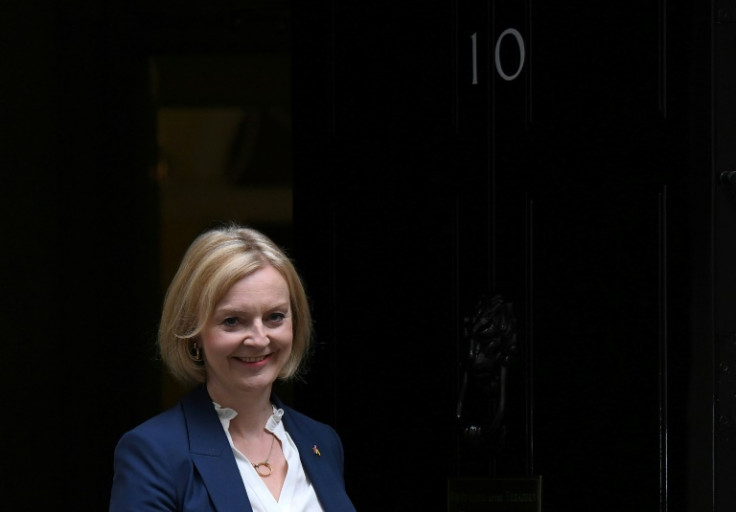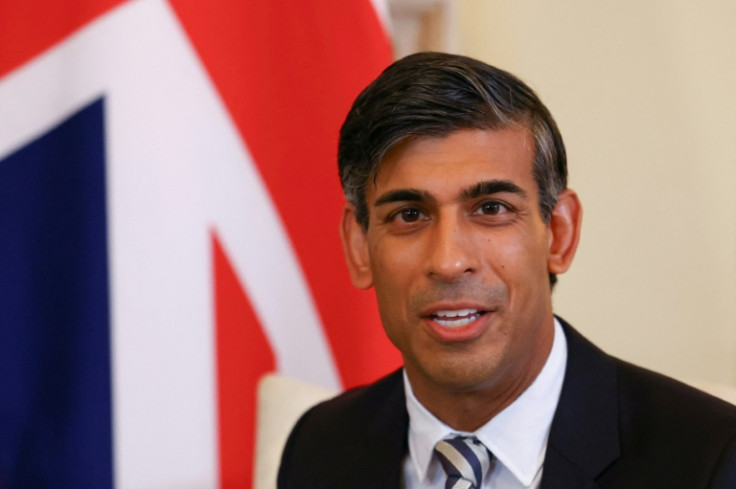
Liz Truss may have flopped as UK prime minister, but she remains on the political stage, this week launching a new movement that aims to push the ruling Conservatives rightwards.
Truss spent just 49 days in office before she was ousted by her own party in October 2022 after her disastrous mini-budget spooked financial markets and sank the pound.
Her brief tenure failed to last longer than the shelf life of a lettuce, as famously highlighted at the time by one of Britain's notoriously unforgiving tabloid newspapers.
Undeterred, however, Truss is a thorn in the side of her successor Rishi Sunak as the United Kingdom gears up for a general election later this year that polls indicate he is set to lose.
After wading into various hot-button issues in recent months, Truss will on Tuesday launch the latest grouping in the faction-ridden Tories: "Popular Conservatism," or "PopCons" for short.
The movement has secured the support of former Tory vice-chairman Lee Anderson and arch-Brexiteer Jacob Rees-Mogg, among other so-called free marketeers.
It aims to shape the Conservatives' manifesto by building support for hardline policies on immigration and tax, posing a headache for Sunak as he tries to keep centrists and right-wingers united.
"Truss's undermining of her successor is unusual but not unprecedented," said political scientist Tim Bale of London's Queen Mary University, citing Margaret Thatcher's attempts to thwart John Major in the 1990s.
"What's unusual is the speed with which she's sought -- utterly unsuccessfully apart from in her own mind and in the minds of a handful of free-market ideologues -- to transform herself from deeply embarrassing failure to supposedly principled critic," he told AFP.
Since leaving office, Truss has urged the government to slash taxes, abandon some net-zero commitments and increase the retirement age.
Last week, she branded Sunak's flagship plan to phase in a comprehensive smoking ban as "profoundly unconservative".
"A Conservative government should not be seeking to extend the nanny state. It only gives succour to those who wish to curtail freedom," she wrote on X, formerly Twitter.
Speakers at Tuesday's launch in central London are expected to attack international courts and call for the UK to leave the European Convention on Human Rights.
They are also expected to say that the Equality Act, which protects against discrimination, should be repealed, and touch on "culture war" issues like gender transition.
They will not call though for Sunak to be replaced as leader of the Tories, who have had five leaders since the 2016 Brexit vote, and who languish behind the main opposition Labour Party in polls.
It is unclear how many MPs will end up supporting the "PopCons," with Truss toxic to many in the party.
She also remains deeply unpopular among the British public, who continue to feel the bite of a cost-of-living crisis that economists say her budget contributed to.
A survey by polling firm Savanta carried out in January gave her a net favourability rating of minus 54, the worst of any politician the company asked about.
"The interesting thing about her specifically, is most unpopular politicians have some sort of favourability 'bouncebackability' once they've left office or left the limelight, but that hasn't happened with Truss," Chris Hopkins, Savanta's political research director, told AFP.
David Jeffery, British politics lecturer at the University of Liverpool, doubts that Truss "is so delusional that she thinks she has another shot at the top job".
He suspects her manoeuvrings are more likely an attempt to influence the future direction of the Conservatives and possibly try to restore her own reputation.
She aims to "definitely shape (the party) and then maybe get a decent shadow cabinet job and maybe rehabilitate herself there," he told AFP.
A source close to Truss who asked not to be named said that she would seek re-election as an MP at this year's nationwide vote and has "strong views about the future direction of the party and the country".
"You can certainly expect her to play an active role in debates about policy in the months ahead as the party discusses the manifesto it will put to the people at the ballot box," he told AFP.








